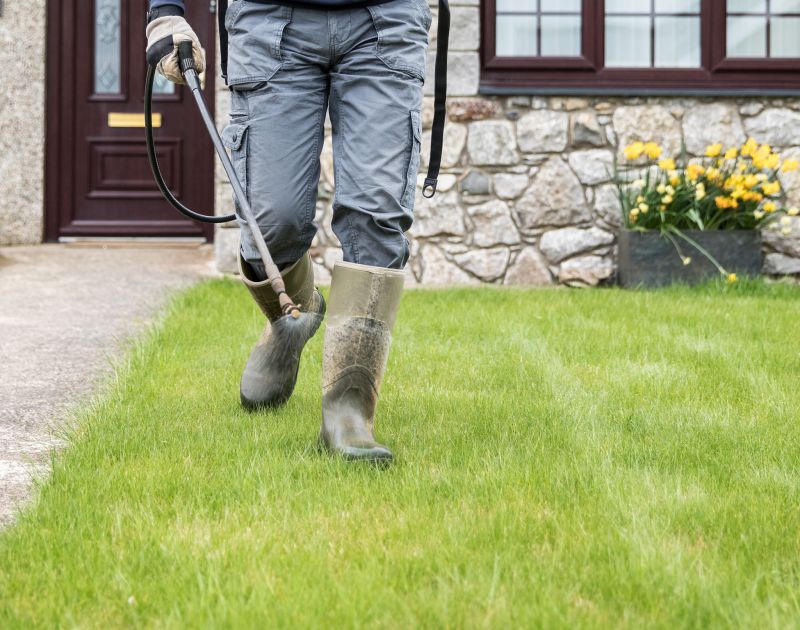Favorite Products For Gradings That Enhance Measurement Precision
Learn about the most recommended grading devices designed to provide detailed and accurate evaluation results.
 In Brunswick, Georgia, accurate and reliable grading products are essential tools across various industries, including agriculture, construction, and education. These products help ensure precision and consistency in measurements, assessments, and quality control. Whether you're grading soil for farming, leveling surfaces for construction, or evaluating materials in a laboratory setting, having the right equipment can make a significant difference in outcomes. Modern grading tools come in many forms, from manual devices to advanced electronic systems, offering options suitable for both professional and DIY applications.
In Brunswick, Georgia, accurate and reliable grading products are essential tools across various industries, including agriculture, construction, and education. These products help ensure precision and consistency in measurements, assessments, and quality control. Whether you're grading soil for farming, leveling surfaces for construction, or evaluating materials in a laboratory setting, having the right equipment can make a significant difference in outcomes. Modern grading tools come in many forms, from manual devices to advanced electronic systems, offering options suitable for both professional and DIY applications.
Top Overall Option
Comprehensive Grading Leveling System
A versatile and durable leveling system equipped with digital readouts and adjustable features, suitable for a wide range of grading tasks. Its accuracy and ease of use make it a reliable choice for professionals and serious enthusiasts alike.
Types of Products For Gradings
Manual Spirit Level
A simple device used to determine horizontal or vertical alignment, ideal for quick assessments and basic grading tasks.
Digital Laser Level
A high-precision tool that projects laser lines for accurate leveling over long distances, suitable for construction and landscaping.
Rotary Laser Level
Provides 360-degree leveling and grading guidance, perfect for large-scale projects requiring comprehensive coverage.
Transit Level
A traditional optical instrument used for establishing grades and measuring angles, often used in surveying.
Automatic Level
An electronic leveling device that offers quick and precise measurements, reducing manual effort.
Laser Distance Meter
A compact device that measures distances accurately, useful for calculating grades and slopes.
Soil Test Kit
Tools designed to assess soil properties, essential for grading soil quality and suitability.
Construction Grade Rod
A measuring rod used alongside levels to determine height differences during grading.
Digital Theodolite
An advanced instrument for precise angle measurements and grade calculations in surveying.
Slope Meter
A device specifically designed to measure inclines and slopes accurately.
Surveying Prism
Used with total stations for precise location and grade measurements in large projects.
Bubble Level App
Mobile applications that utilize smartphone sensors to provide quick leveling checks.
Hydraulic Grading Blade
Heavy-duty equipment attachment used to shape and grade soil or surfaces during construction.
Soil Compaction Tester
Tools to evaluate soil density, important for ensuring proper grading and foundation stability.
Digital Incline Meter
Electronic device for measuring precise inclines and slopes in grading projects.
Marking and Measuring Tape
Essential for quick measurements and marking grading boundaries.
Grading Rake
Manual tool used for shaping and smoothing soil or gravel surfaces.
Laser Receiver
Works with laser levels to detect laser beams and provide accurate elevation readings.
Popular Choices
Widely used for precise leveling in construction and landscaping projects.
A common choice for quick, on-the-spot assessments of levelness.
Popular for large-scale grading and interior leveling tasks.
Favored for its portability and accuracy in measuring distances and slopes.
Valued for reducing manual effort and increasing measurement speed.
A traditional surveying instrument still favored for its reliability.
Often used in terrain assessment and grading projects.
Essential for measuring height differences during grading activities.
Popular among surveyors for its precision in angle measurement.
Commonly used to evaluate soil conditions prior to grading.
Preferred for shaping large areas efficiently.
Helps in detecting laser beams for accurate grade alignment.
Frequently used in conjunction with total stations for precise measurements.
Popular for quick, smartphone-based leveling checks.
Common for ensuring soil stability in grading projects.
Used for accurate slope measurements in various grading scenarios.
A staple for quick boundary marking and measurements.
A manual tool frequently used for surface shaping.
Choosing the appropriate grading products involves understanding their specific functions and how they align with your project requirements. Durability, ease of use, and measurement accuracy are some key factors to consider. Many products now incorporate digital technology, providing enhanced precision and data recording capabilities. Proper selection can streamline workflows, improve results, and save time, especially in demanding environments.
In this guide, we highlight a range of products designed for grading purposes, emphasizing versatility and functionality. Whether you need a simple manual tool or a sophisticated electronic device, the options available cater to various budgets and levels of expertise. Investing in quality grading tools can contribute to the success of your projects, ensuring that measurements are consistent and reliable over time.
Understanding the different types of grading products available can help you make informed decisions. From basic leveling instruments to advanced digital systems, the right product depends on your specific needs and application scenarios. This overview aims to provide clarity and assist in selecting products that best fit your grading tasks in Brunswick, GA, and beyond.
Key Buying Considerations
- Purpose and specific application requirements to ensure compatibility.
- Measurement accuracy and precision levels needed for your projects.
- Ease of use and ergonomic design for efficient operation.
- Durability and build quality to withstand environmental conditions.
- Technological features such as digital displays or Bluetooth connectivity.
- Battery life and power source considerations for electronic devices.
- Compatibility with existing tools or systems used on-site.
- Portability and weight for ease of transport and handling.
- Availability of calibration and maintenance support.
- Budget constraints and overall value for the features offered.
- User reviews and feedback to gauge reliability and performance.
- Training or learning curve associated with advanced tools.
- Compatibility with measurement units preferred in your region.
- Availability of accessories and replacement parts.
- Warranty and customer support options.
